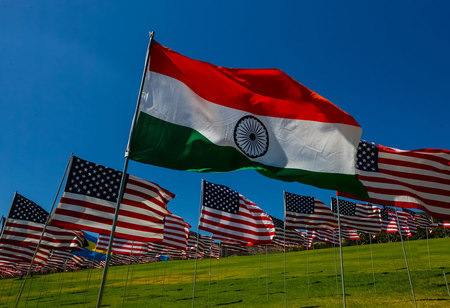
'Make in India' Policy Pose Challenges to US-India Trade


The Biden administration has informed the US Congress that India’s recent significance on the import substitution through the ‘Make in India’ campaign has “epitomised” the challenges that are facing the bilateral trade relationship.
The US Trade representative has stated that during 2020 the US continued its engagement with India as a measure to try to resolve the longstanding market access impediments that is affecting US exporters.
In its report to Congress, USTR states, "While India's large market, economic growth, and progress towards development make it an essential market for many US exporters, a general and consistent trend of trade-restrictive policies has inhibited the potential of the bilateral trade relationship. Recent Indian emphasis on import substitution through a Make in India' campaign has epitomised the challenges facing the bilateral trade relationship.”
The objectives of the US in this negotiation includes resolution of various non-tariff barriers, that has targeted reduction of certain Indian tariffs, and other market access improvements.
The United States also is involved with India on an ongoing basis throughout 2020 in reaction to specific concerns affecting the full range of pressing bilateral trade issues, including intellectual property (IP) protection and enforcement, policy development affecting electronic commerce and digital trade, and market access for agricultural and non-agricultural goods and services, it said.
According to the report, while the United Kingdom remained the largest supplier of services, accounting for $ 62.3 billion of total US services imports in 2019, India was the sixth largest with $ 29.7 billion after Canada ($ 38.6 billion), Japan ($ 35.8 billion), Germany ($ 34.9 billion) and Mexico ($ 29.8 billion).
The USTR said that in July 2020, in response to outreach by it, India released US shipments of lactose and whey protein concentrate (WPC) that had been blocked since April 2020 when India began enforcing a requirement that those products be accompanied by a dairy certificate.
Before the transition been put in practice, US exports of lactose and WPC to India had increased steadily for years, and has reached a high of approximately $ 54 million in 2019 before falling to approximately $ 32 million in 2020.